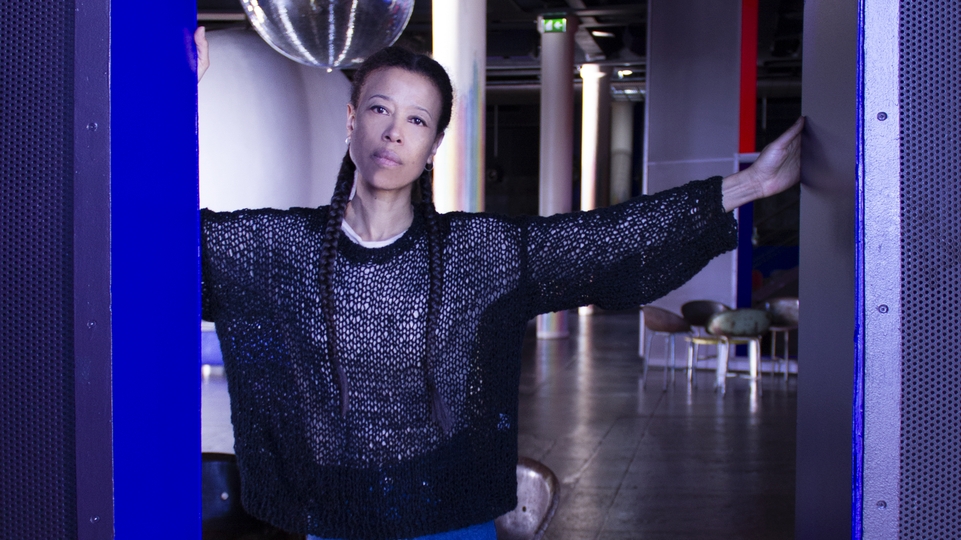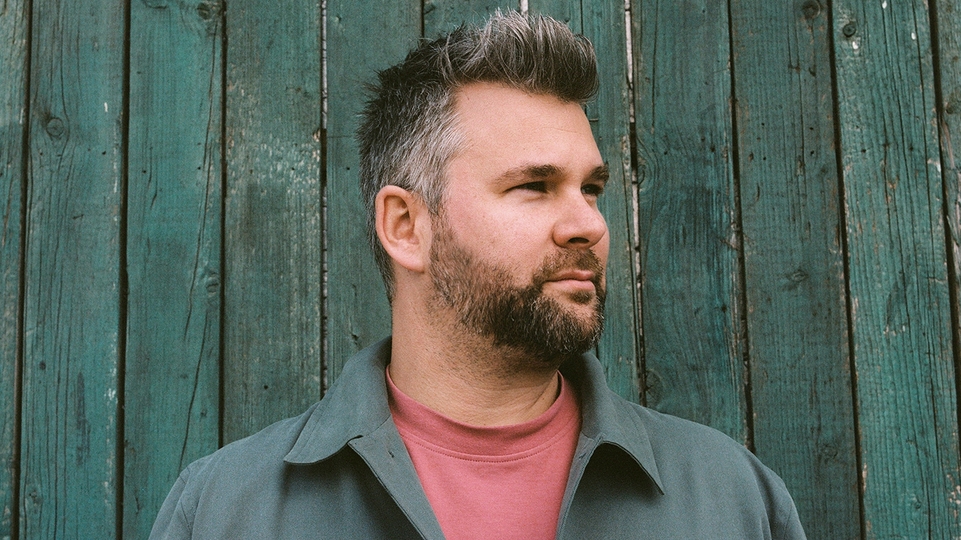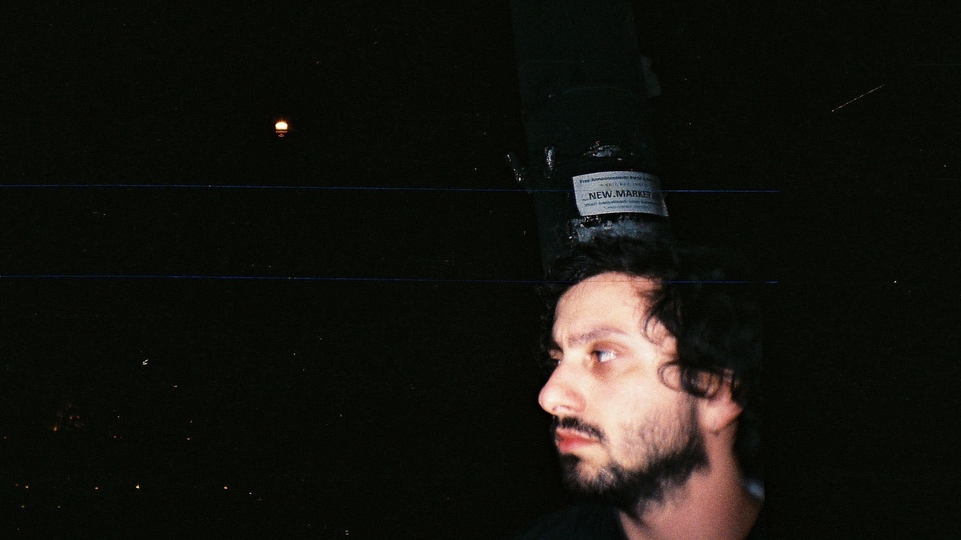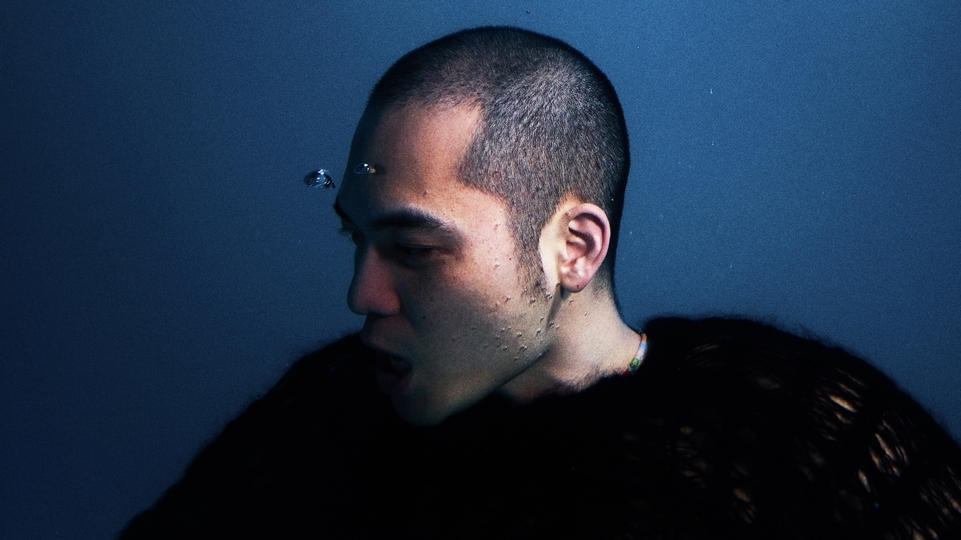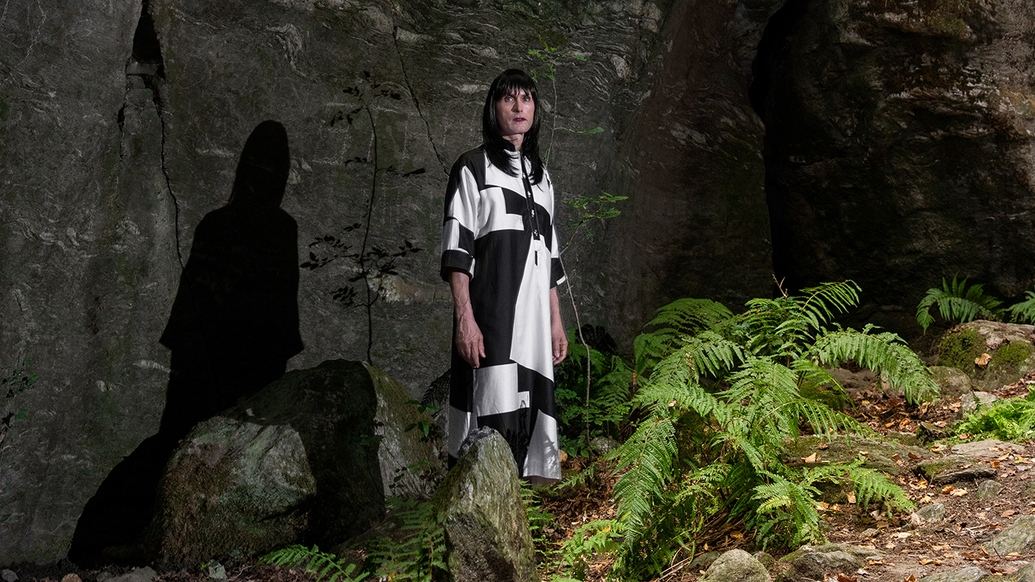
On Cue: Rrose
As Rrose, Seth Horvitz explores techno’s deep, psychedelic veins. The Californian artist’s latest album, ‘Please Touch’, expands on the ecological aura that’s coursed through their recent output. Here, alongside an On Cue mix of ‘90s tracks to celebrate 30 years of DJing, he speaks to Liam Cagney about creation as an act of discovery, the influence of microtonal composers, performing in drag, and the dancefloor's taste for ever-faster techno
It’s a sunny afternoon when DJ Mag speaks to Seth Horvitz over Zoom. The DJ, producer and composer behind the experimental techno persona, Rrose, has just returned from a near 50-mile cycle in the countryside outside of London. It conveniently lets us start on the topic of how nature inspires their singular productions.
“It’s just an intuitive link,” Horvitz says. “The things that inspire wonder and curiosity in me tend to relate to natural forms, shapes, textures and things like that. I think I’m searching for a similar sensation when I make sound. And I often think of it more as a process of discovery than composition.”
Building on the ecological aura of her 2019 LP, ‘Hymn To Moisture’, Rrose’s new album, ‘Please Touch’, released this month via her own Eaux label, exemplifies that process, and culminates in a remarkable central triptych: ‘Spore’, ‘Feeding Time’ and ‘Spines’. In these tracks, exhilarating electronic sounds mutate strangely within an environment teeming with micro features: undulating bass glissandi, hypnotic feedback and microtonal intervals merge to create a techno record that somehow mirrors a biomorphic process of becoming.
“I’m not very professional,” they say of their compositional approach, which is often based on playing hardware synths like the Lyra, Deckard’s Dream and Buchla Easel, and then manipulating the results in Ableton Live. “I have techniques I use, but they’re not really properly implemented. I’m looking for some element of surprise within these familiar techniques.” Rather than pre-planning track structures, Rrose seeks the sensation of “something that arose out of the combination of processes I was experimenting with, but wasn’t exactly what I intended”.
Rrose describes ‘Please Touch’ as being “mostly a pandemic project”, though some of the ideas within it date even further back. “The process of making an album for me is generally very long and drawn out,” she says. “I tend to really comb over details. There’s a lot of trial and error, and playing things for close friends, in that order, and then getting feedback.”
When Rrose first appeared in 2011 on the Sandwell District label with a slew of tracks including the psychedelic classic, ‘Waterfall’, Horvitz was already well established with his underground techno alias, Sutekh. He had begun to feel uninspired by the genre, however, and went back to study experimental music at the esteemed Mills College in Oakland, California, whose alumni included Holly Herndon, Steve Reich and Laurie Anderson. (You can read Horvitz’s Mills-era analyses of Ligeti and Stockhausen on the Rrose website).
“The composers that are directly inspiring to me are people like James Tenney and Éliane Radigue, who often had ideas that were in some way simple, but who applied them in a very profound way,” says Horvitz. “The listening experience that would arise from that, I personally find very profound. I think I’m trying to do something similar with techno.
“I’m always trying to latch on to something simple that I think of as a seed of a piece,” he continues. “So, it’s not something where I’m using mathematical formulas and algorithms. I immediately try and latch onto a sound that’s important, or a process that’s doing something. It might just be some effect that’s feeding back on itself, and I want to hone in on that and make that the defining factor of the piece.”
This is how most tracks on ‘Please Touch’ were written. On ‘Rib Cage’, Rrose takes a short snippet of bass-heavy feedback from the Lyra-8 synth, loops it to form the spine of the track, then builds everything else around that. At points in the production process, she links effects in such a way that modulating one sound causes several others to react and mutate. Elsewhere, tracks like ‘Pleasure Vessels’ and ‘Turning Blue’ are made using only the sounds of a single synth.
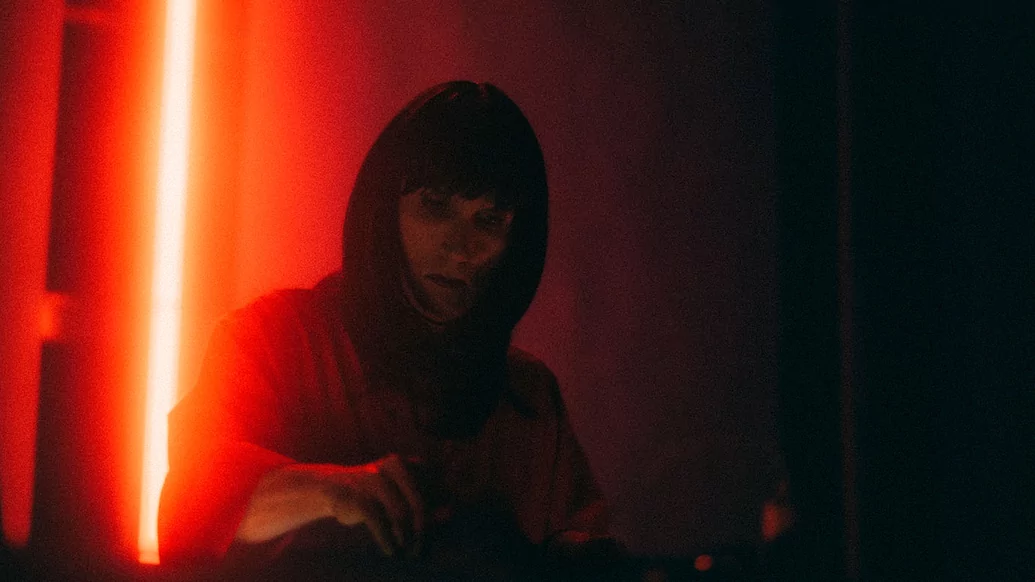
The Rrose alias is an homage to French Dadaist artist Marcel Duchamp's female alter-ego, Rrose Sélavy (the name in French sounding like ‘Eros, c'est la vie’). Like that character, Rrose appears in feminine drag when they perform live, wearing a wig, make-up and nail varnish while, behind the desk, they use Ableton Live to manipulate and layer audio stems, with an iPad and a MIDI controller used to control filters and effects.
The drag queen Sasha Velour points out in their new book, The Big Reveal, that “the roots of the art of drag are more ancient than the word drag itself. After all, identities like ‘queer’, ‘trans’, ‘cis’, ‘gay’, ‘straight’ are modern”. Drag is from time immemorial. DJ Mag asks Rrose if her incorporation of drag in a club setting, in combination with her music, is used to evoke something primeval, from a time before the oppressive regime of contemporary Western cis-heteronormativity, and certainly long before this particularly alarming and unsafe time for people who perform in drag, or who are trans.
“Initially it was kind of an experiment,” she says. “I wasn’t sure how I would react to it and how the project would develop or how long it would last. But different meanings have become important over the years. It functions on a few different levels. There’s the personal, which I try not to talk about too much, but it has led to pretty intense personal reflection on my own gender identity. But also, what it does in the space of performance, this is something really important to me.
They continue: “Time and time again, [with] the way people look at me and experience the set and experience the music when we’re in this space, you do get a sense that this is a kind of magical, alchemical situation, where the music involves material transforming, and this is also a person who has transformed themselves somehow. I think of it as an invitation to the audience, to say: ‘This is no longer the normal space of your life. This is a space where different things can happen’.”
Horvitz’s music, going back to early productions like Sutekh’s ‘Dirty Needles’ (1997), has often been dancefloor-focused, but he has never exclusively favoured a hard-and-fast techno style. Several tracks on ‘Please Touch’, and most of the tracks on the recent album ‘Plasma’ by Lotus Eater (Rrose's collaborative project with Italian techno artist Lucy), have a relatively slow BPM. Where does Rrose stand on the recent trend for ever-faster techno?
“I notice stuff is speeding up in DJ sets for sure,” he says. “It’s a little disconcerting in a way but it seems inescapable. I made a Phase Fatale remix that’s 120 BPM, and I really liked the way it sounded when I made it. But I find that when I’m playing it, I end up pitching it way up to over 130 or something! So even I’m doing that to my own music.”
Hearing music over large sound systems when DJing, Rrose says, tends to inform decisions she makes in the studio. “If there’s another artist who’s performing that I like, I try to stand at the back and come to the sweet spot and really soak it in,” he says. “Because the way that I approach DJing is to do a lot of layering and mixing and carving out spaces for things, there is a real interplay between how I approach making the music and DJing the music.”
Rrose’s recent ‘Tulip Space’ EP, for example, opens with the dancefloor pulveriser ‘A Row Of Cylinders’, based on shifting noise textures. DJ Mag asks if it was deliberate to have this energetic dancefloor track as her first release post-pandemic. “Definitely,” she says. “One of the reasons I didn’t have any releases during the lockdown times is that I didn’t want to put something out if it wasn’t going to be played on sound systems. When I put out that EP, I knew I wanted to say – also because I knew that the album was going to be pretty experimental – ‘Look, I can make proper dance music still, don’t worry!’”
If it’s experimental in places, ‘Please Touch’ is part of a distinguished techno lineage in that regard. It’s a living, breathing record that suggests that futurism, in the Anthropocene, might involve a heightened engagement with nature. It’s also perhaps Rrose’s best work to date, confirming their status as one of techno’s most inventive artists.
Rrose’s On Cue mix celebrates the 30 years they’ve been making and playing techno with a selection of tracks from the 1990s. Creating the mix, they say, brought back memories of early- and mid-nineties underground parties in the Bay Area, and of how Horvitz taught himself to mix in 1993 during his 3:30 to 6 AM radio slot at KALX Berkeley (“the only way I could get access to Technics 1200s”).
“I always get freaked out when I compare the last 30 years to the 30 years before, going back to 1963,” Rrose says. “To think that techno has lasted this long and is as strong and relevant as ever is mind-blowing. ‘90s techno is now the equivalent of what ‘classic rock’ was back then – somehow that feels crazy! But I must say that there are a lot of tracks from the ‘90s (even some from the ‘80s) that still sound very fresh. Hopefully I encapsulated that in this mix.”
Listen to Rrose's On Cue mix below.
Tracklist:
Coil ‘Her Friends the Wolves’ [Threshold House] (1992)
Reload ‘1642 Try 621’ [Infonet] (1993)
Theorem ‘Mantra One’ [Plus 8] (1997)
Hallucinator ‘Frontier’ [Chain Reaction] (2000)
Ø ‘Atomit’ [Sähkö] (1993)
Subhead ‘Xerox’ [Subhead] (1996)
Polygon Window ‘Untitled’ [Warp] (1993)
Chance McDermott ‘Computer Funktion (Vice Hard Drive Remix)’ [Black Nation] (1995)
Sutekh ‘Dirty Needles’ [Drop Beat] (1997)
Convextion ‘AA’ [Matrix] (1995)
Adam Beyer & Lenk ‘Drum Code No. 1 (Planetary Assault Systems Remix 2)’ [Primate] (1997)
Shake ‘Frictional Beat No 5’ [Frictional Recordings] (2002)
1016 ‘Do This’ [Bush] (1996)
Plastikman ‘Elektrostatik’ [Plus 8] (1993)
Move D ‘Sandman’ [Source] (1995)
Vortex ‘Synergy 2’ [Plus 8] (1991)
Drexciya ‘Aquatic Cataclysm’ [Tresor] (2001)
Farley Funkin Keith - Jackin The Bass [House] 1985)
Surgeon ‘THX1139 (wirr)’ [SRX] (1996)
Joey Beltram ‘Drum Unit’ [Trax] (1993)
Freaky Chakra ‘Thing’ [Astralwerks] (1998)
Spooky ‘Concussion’ [Generic] (1996)
InSync ‘Storm’ [Irdial] (1992)
Wishmountain ‘Radio’ [Antiphon] (1998)
Jeff Mills ‘Humana’ [Axis] (1995)
Robert Owens ‘I'm Strong (Bonus Beats)’ [Alleviated] (1987)
Concept ‘07.96’ [Concept] (1996)
Drexciya ‘Species of the Pod’ [Tresor] (2000)
Pan Sonic ‘Hades’ [Blast First] (2002)
James Moorer ‘Lions are Growing’ (1983)
